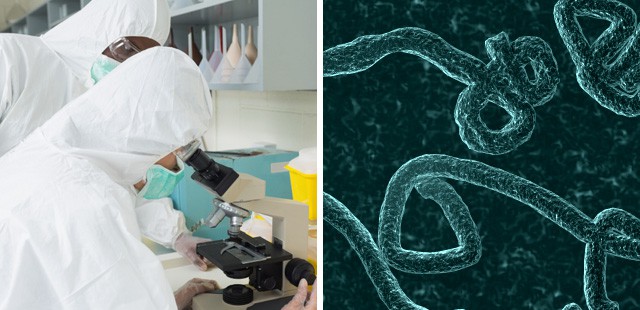
Scientists tracking the spread of Ebola in West Africa say the virus has mutated since the start of the current outbreak, and could become more contagious as a result.
Researchers at the Institut Pasteur are analyzing hundreds of blood samples from Guinean Ebola patients in an effort to determine if the new variation poses a higher risk of transmission, according to the BBC.
The warning comes as the World Health Organization reported that in Guinea, only 30 percent of new cases are known contacts of Ebola patients – meaning officials have no idea how the majority of patients are becoming infected.
“We know that [the virus] has changed and it’s changed quite a lot, and that is very important for diagnosis and for treatment,” Dr. Anavaj Sakuntabhai, human geneticist at the Institut Pasteur, told BBC. He said there had been several asymptomatic cases reported, sparking concern that patients without symptoms might still be able to spread the virus to others.
“These people may be the ones who can spread the virus better, we still don’t know that yet,” said Dr. Sakuntabhai. “The virus can change itself from more deadly into less deadly but more contagious and that is something that we are afraid of.”
Although virus mutations are common, researchers are concerned that Ebola could eventually morph into an airborne disease if given enough time. However, there is no evidence to suggest this has happened yet, and the virus is still spread only via direct contact with the bodily fluids of an infected person.
Scientists have also recently warned that mutations detected in the structure of the Ebola virus could impact the effectiveness of certain experimental drugs and vaccines.
According to the latest WHO data, more than 22,000 cases of Ebola, including 8,795 deaths, have been confirmed across Liberia, Guinea and Sierra Leone. The current epidemic is the largest and most complex outbreak of Ebola in history, and scientists have said the risk of significant (i.e., consequential) mutations increases each time the virus is transmitted. In August, researchers discovered that the virus had already acquired more than 300 new mutations since the start of the outbreak.
Bruce Aylward, who is leading the WHO Ebola response, said earlier today that the virus is not under control, despite recent progress, and warned outbreaks often come in waves. “This is like being in bed with two cobras, and one of them is dead,” he said. “You still have an incredibly dangerous situation.”
